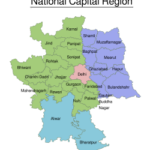Authorities in Pakistan-administered Kashmir have mandated the closure of all religious seminaries for ten days, citing concerns over potential Indian military action following a deadly attack on tourists in Indian-administered Kashmir. While officials publicly attributed the decision to an ongoing heatwave, internal communications and statements from the Department of Religious Affairs suggest the closures are a precautionary measure in response to escalating regional tensions.
The closures affect 445 registered madrasas, which collectively serve over 26,000 students. These institutions, offering Islamic education, often function as accessible schooling alternatives in the region. The decision to suspend their operations underscores the heightened alertness and the potential risks perceived by the local administration.
The immediate catalyst for these developments was an attack in Pahalgam, Indian-administered Kashmir, where 26 tourists, predominantly Hindus, were killed. India has attributed the assault to The Resistance Front, a group linked to Pakistan-based Lashkar-e-Taiba. Pakistan has denied involvement but has expressed concerns over possible retaliatory actions from India.
In response to the attack, India has taken several measures, including expelling Pakistani diplomats, suspending the Indus Waters Treaty, and enhancing military readiness along the Line of Control. These actions have contributed to the current atmosphere of uncertainty and have prompted precautionary steps within Pakistan-administered territories.
The closures of madrasas are part of broader security measures being implemented in the region. Authorities have also evacuated tourists from border areas and increased surveillance to monitor potential threats. These steps reflect the administration’s efforts to mitigate risks amid a volatile security landscape.




 Fierce Storm Batters Delhi-NCR, Disrupts Flights and Claims Lives
Fierce Storm Batters Delhi-NCR, Disrupts Flights and Claims Lives 